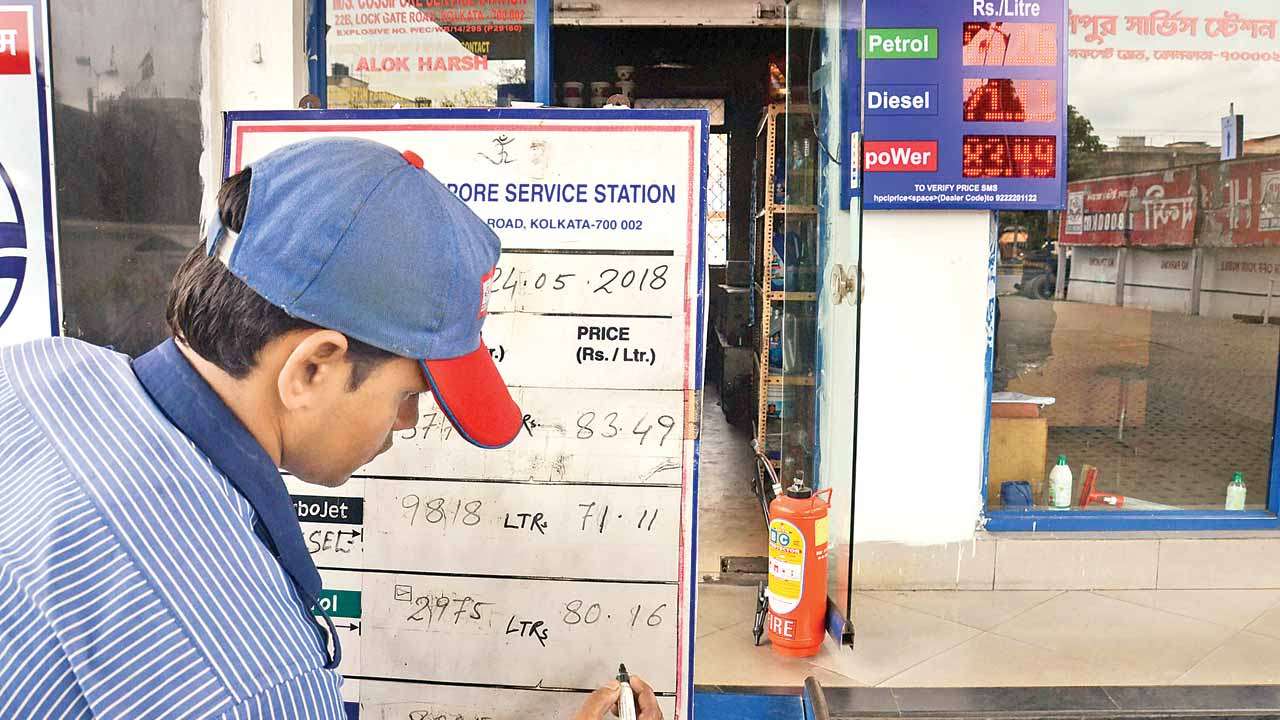
While preparing for a lecture recently, I was astounded to read that India’s state-run oil companies do not hedge their oil purchases. I reread that statement several times and then cross-checked with other sources. Yes, India, the third largest importer of oil in the world does not use readily available financial instruments to control the risk of increasing oil prices. This leads to tremendous price variability, and because oil price is an important component in the pricing of many products and services, its variability creates tremendous business uncertainty in the country.
Here are some facts. Crude oil imports make up 40 per cent of India’s total imports. India spends $350 million a day to pay for its oil imports. This means that as oil prices increase India’s current account deficit (the excess of imports over exports) increases. As a result of increasing demand and rising oil prices, India’s crude oil imports rose by 28 per cent in the first quarter of 2018 which caused the current account deficit to increase sharply to $13.0 billion or 2 per cent percent of GDP, up from $2.6 billion, or 0.4 per cent of GDP, in the same period of the previous fiscal year.
This level of current account deficit is unsustainable for a country that desperately needs capital to invest in its physical and human capital. Compound this with a falling rupee, and the situation starts to get very serious for the economy. The last thing India needs is oil-price-induced inflation that chokes the life out of businesses.
But, you say, there is nothing the government can do about rising oil prices. After all, the price of oil is determined in the global market and the Indian government has no control over them. True, but there are financial instruments available that can effectively hedge these price increases. In other words, there are futures and options contracts available that can allow oil companies to lock in the price of the oil they import. These instruments are like an insurance policy that mitigate the risk of an adverse event. If these oil companies were privately owned, you can rest assured that every single cent of oil they imported would have been hedged against a price increase. Even the smallest countries — Morocco, Ghana, Lichtenstein — hedge against oil prices going up to protect their citizens from inflation.
It is, therefore, shocking that Indian oil companies would put the country at such tremendous risk by not hedging against oil price increases. And the mechanism is not that complicated.
Let me briefly explain. Since India is a big purchaser of oil, the risk it runs is of an increase in the price of oil and the extra cost associated with importing oil at the higher price. A long position in oil futures would profit from a rise in oil price and offset the extra import cost from a price increase. The crude oil price this week is around 68.75, and July 2019 futures contracts with a settlement price of 62.4 are readily available on the world’s largest commodity exchange The Chicago Mercantile Exchange (CME). Irrespective of how high the price of oil in the global market, the futures contract allows the oil companies to lock in the purchase price of 62.4 between now and July 2019. The risk you ask. The risk is if the price of oil goes down, below 62.4, between now and July 2019, then the benefit of that price decrease is lost. So yes, while there is the probability of oil prices decreasing but that is not a risk that is of concern to the country. It is the risk of a price increase that threatens the economy and that can be hedged away using oil futures contracts.
There are other instruments like options contracts which, for a small premium, would allow oil companies to hedge against a price increase and still allow it to benefit from a price decrease. Again using these instruments is not rocket science, but for some bizarre reason, India’s oil companies fail to use these instruments. They may not understand how to use them, but there are plenty of experts available who could help them in the process. Ironically, India’s largest commodity exchange, MCX, recently started trading in oil futures and options contracts. So there is plenty of expertise available if the government is open to using it.
India can stabilise the price of its oil imports by using financial instruments. Not hedging the price of a commodity on which the economy is so heavily dependent is grossly irresponsible. The government should order all state-run oil companies to set up hedging strategies. Even an annual saving of 10 per cent would amount to roughly $10 billion, which is equal to India’s entire education budget for the year.
The author is a Financial Economist and Founder, contractwithindia.com. Views expressed are personal